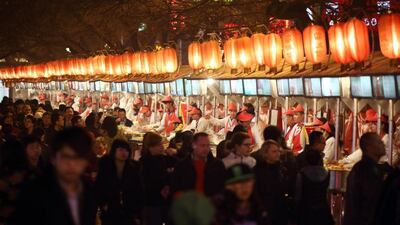Kinder Than Solitude, Yiyun Li's second novel, is in many ways a closer relative to her first collection of short stories than it is to its immediate next of kin, Li's first novel. The Vagrants (2009) was a gloomily compelling debut set in a Chinese provincial town during the aftermath of Mao's death. The tales in A Thousand Years of Good Prayers (2005), while also tracking ordinary Chinese individuals confronting their pasts and adapting to the present, shone an equally illuminating light on the pressures faced by Chinese immigrants. Li, a Chinese-American, utilises her birthplace and her adoptive country in Kinder Than Solitude, and by tapping into memories, drawing on experiences and blending in a mystery, constructs a taut and intricate novel of great emotional depth.
An opening scene at a crematorium introduces us to one of the main, living characters, together with a body whose tragedy affects, even pollutes, the rest of the cast. Boyang, a self-made businessman thriving in boomtown Beijing, is dealing with the paperwork for the funeral of his old friend, Shaoai, the victim of a poisoning incident – “whether it had been an attempted murder, an unsuccessful suicide or a freak accident had never been determined”. Shaoai has taken more than 20 years to die, her agonising deterioration stripping her of sight and hair and reducing her intelligence to that of a three-year-old. Cause of death is clear but motive and perpetrator remain unknown.
Gradually, Li brings in more key players. Years ago at high school, Boyang was close friends with two girls, Moran and Ruyu. After Shaoai’s death the friendship foundered and both girls emigrated to separate parts of America. Boyang’s regular emails to them have never been acknowledged.
From here, Li pulls away from Boyang, branches out and retreats into backstory. We flit to 1989 when a haughty, God-fearing Ruyu is sent from her rural town to stay with Shaoai and her parents in Beijing. Moran and Boyang act as comforting buffers after numerous jarring exchanges with older, wiser, more headstrong Shaoai, the Simone de Beauvoir-reading radical student intent on political change.
Li veers off again, this time fast-forwarding to show us Ruyu and Moran in America. In contrast to upwardly mobile Boyang, Ruyu is a kind of deluxe dogsbody for a rich Californian housewife and her coterie of friends. Moran works for a pharmaceutical company in Massachusetts and nurses her cancer-afflicted ex-husband. Both girls are casualties of broken marriages of convenience – green cards their gain, insecurity and loneliness their booby prize.
In and around these separate stories, viewpoints and time periods, Li stealthily weaves her murder-mystery, reminding the reader that her novel of sundered relationships and botched lives has at its heart an earlier disaster, one whose cumulative effects can still be felt. Suspicion is sowed. Did one friend kill Shaoai and the other two cover it up? Or after Shaoai’s condemnation of the Tiananmen Square massacre, carried out by “a breeding farm of fascists”, might shady governmental forces be behind her death?
Li immerses us in her guessing game while fleshing out her characters and finessing her impressive backdrops. Her three leads are guileless and innocent in 1989 but wily and evasive in the present, pulling the wool over the eyes of parents, lovers and, thrillingly, the reader. Li’s 21st-century Beijing, like Tash Aw’s Shanghai in Five Star Billionaire, comprises seething, fast-paced modernity flecked with anecdotal remnants of history and undying tradition and superstition.
There are only two slight blots on Li’s narrative. The first is sporadic gravitas-heavy dialogue that fails to convince: “I was thinking that in everyone’s heart, there’s a graveyard for first love,” Boyang tells a girl on a date. The second is Li’s tendency towards cloying sententiousness and grandiose assertions. Buddhist sayings and Chinese proverbs have their place and are artfully inserted, but Li’s own aphoristic contributions feel both crudely tacked on and too sweeping for their own good: “The best life is the life unlived”; “Laughing by oneself is more intolerable than mourning alone”; “Nothing destroys a liveable life more completely than unfounded hope.” What should read as booming and insightful Tolstoyan pronouncements instead has the hollow ring of Amy Tan fortune-cookie wisdom.
When Li reins in these excesses we marvel at her depiction of lonely souls wrestling with hostile environments and guilty consciences. Once again China looms large on the page, but the main pull this time around is not where Li’s characters live but how they manage to survive: together or apart, with love or without, in search of a balance between “the crowdedness of family life and the faithfulness of solitude”.
Malcolm Forbes is a freelance essayist and reviewer.

